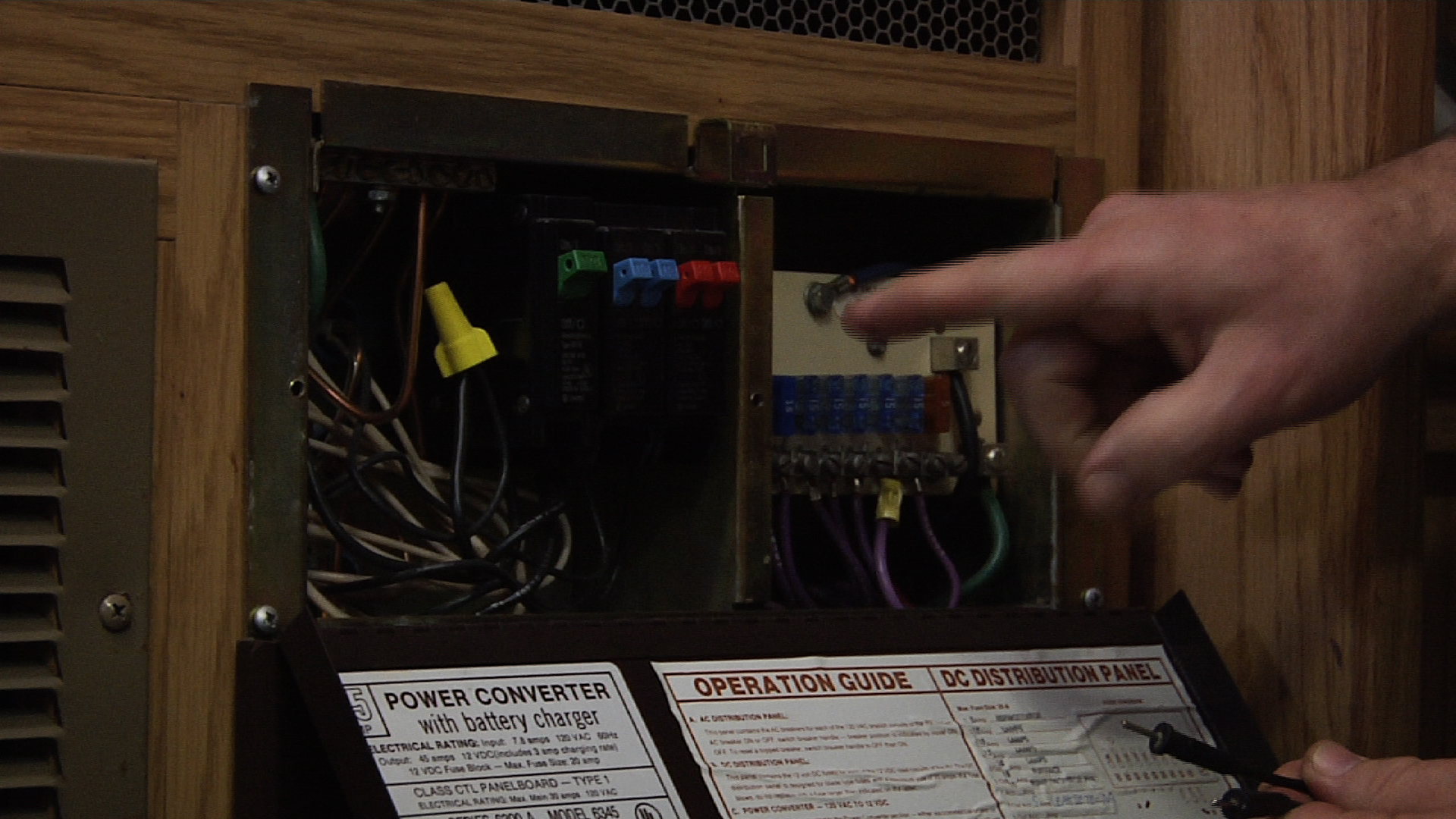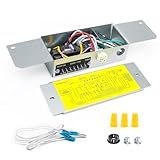The RV air conditioner fuse is a crucial component of your RV’s cooling system. It protects the air conditioner from electrical overloads and faults.
Ensure to locate and check the air conditioner fuse regularly to maintain the proper functioning of your RV’s cooling system.
Having a fully operational air conditioner in your RV is essential for comfortable travels. However, issues with the air conditioner fuse can disrupt your cooling system, leading to discomfort during your trips.
Regularly checking the fuse and ensuring its proper functioning will help you avoid such inconveniences. We will explore the location of the RV air conditioner fuse, common issues related to it, and methods to troubleshoot and replace faulty fuses.
By understanding your RV’s air conditioner fuse, you can ensure a pleasant and uninterrupted travel experience.
You May Like
- Plug-and-Play Installation – Zero Technical Skills Needed Skip…
- Smart Protection for Your Devices & Generator Built-in over-voltage,…
- Effortlessly Start Your AC with Small Generators – No More Power…
- Run AC + Other Appliances Simultaneously Why choose between cooling and…
- [Fitment Vehicles]: This RV AC control box is designed for Coleman Mach…
- [Premium Quality Materials]: The 9330C755 coleman Mach thermostat control…
- [Maintain Comfortable Temperature]: The coleman ac control box is a solid…
- [What Problem Can Solve]: If your current Coleman A/C Control Box is old or…
- Product Details – The fuse assortment kit includes 60pcs Mini fuses and a…
- High Quality – Premium zinc alloy terminals ensure enhanced conductivity…
- Safety Protection – When the current is overloaded, the fuse blows quickly…
- Widely Compatible – These blade fuses are suitable for car, truck, SUV, RV,…
- Efficient Cooling: 10,000 BTU air conditioner cools your RV in just 15…
- The 4,500 BTU PTC heater provides supplementary warmth, ideal for mild…
- Durable & Weather-Resistant: Built with UV-stabilized ABS materials, EPDM…
- Quiet Operation: Brushless copper motor fans reduce noise, while…
- 【Wide Compatibility】 This replacement thermal fuse is compatible with…
- 【Reliable Temperature Protection】 Functions as a safety cutoff. When…
- 【Durable Materials】 Built from aluminum alloy and thermoplastic…
- 【Simple DIY Installation】 Easy replacement process for most DIY users….
Identifying Ac Fuse Issues
When your RV’s air conditioner is not functioning properly, it could be a result of a blown fuse. Some signs that indicate a blown fuse include:
- Outdoor AC unit not turning on
- Slight hum near the unit but no cold air
- Tripped circuit breaker
- Lack of power for the air conditioner
In an RV, the AC fuse is typically located in the fuse panel. To locate the AC fuse:
- Locate the RV’s fuse panel, which is usually found in the interior living area of the RV.
- Open the fuse panel cover to access the fuses.
- Refer to the RV owner’s manual to identify the specific fuse that controls the air conditioner.
When troubleshooting AC fuse issues in an RV, you will need the following tools:
- Multimeter: Used to check the continuity and functionality of the fuses.
- Flashlight: Helps in illuminating the fuse panel area for better visibility.
- Screwdriver: Used to remove the fuse panel cover for accessing the fuses.
Safety Precautions And Preparation
Ensuring the safety of your RV air conditioner fuse is crucial. Before replacing the fuse, disconnect the power supply to prevent electric shock. Locate the fuse panel and turn off all electrical devices. Then, carefully remove and inspect the fuse before replacing it with a new one.
Regularly checking and maintaining fuses is essential for safe and efficient RV air conditioning.
Disconnecting Power Before Inspection
Before inspecting the RV air conditioner fuse, it is crucial to ensure that all power sources to the unit are properly disconnected.
This includes disconnecting the RV from shore power and ensuring that the generator, if applicable, is turned off. Taking this precaution reduces the risk of electric shock or injury during the inspection process.
Safety Gear And Best Practices
When inspecting the RV air conditioner fuse, it is highly recommended to wear appropriate safety gear such as insulated gloves and eye protection.
These items help protect against electric shock and potential debris that may arise during the inspection. Additionally, adhering to best practices such as working in a dry, well-ventilated area further ensures a safe inspection process.
Understanding Your Rv’s Electrical System
Before attempting to inspect the air conditioner fuse, it’s essential to have a clear understanding of your RV’s electrical system.
Each RV may have a different fuse panel layout and a unique set of fuses allocated for various components. Taking the time to familiarize yourself with the electrical system will help in locating and identifying the correct fuse and prevent any damage to the system during the inspection.
Step-by-step Troubleshooting
When your RV air conditioner is not functioning as it should, the first troubleshooting step should be to check the fuse.
A blown fuse could be the reason behind the malfunction, and by following a systematic approach, you can identify and rectify the issue. Below are step-by-step instructions to troubleshoot your RV air conditioner fuse.
Checking The Thermostat Settings
Start by ensuring that the thermostat settings are correct. Make sure the thermostat is set to the cooling mode and the temperature is lower than the current room temperature.
Inspecting The Fuse Box For Visible Damage
Locate the fuse box in your RV and visually inspect the air conditioner fuse for any signs of damage such as discoloration, melting, or a broken filament.
Testing The Fuse With A Multimeter
If the fuse appears to be intact, use a multimeter to test its continuity. Remove the fuse from the box and place the multimeter probes on each end of the fuse. If there is no continuity, the fuse is blown and needs to be replaced.
Identifying Common Issues Causing Fuse Problems
Common issues that can cause fuse problems include a short circuit in the wiring, a faulty compressor, or an overworked motor.
Inspect the wiring for any signs of damage, and if necessary, seek professional assistance to diagnose and rectify the underlying problem.
Resolving Rv Air Conditioner Fuse Complications
RV air conditioner fuse issues can be a major inconvenience when you’re on the road. Here, we’ll discuss essential tips for replacing a blown fuse, long-term solutions to prevent fuse blowouts, and when it’s crucial to seek professional help for AC issues.
Tips For Replacing A Blown Fuse
When dealing with a blown RV air conditioner fuse, here are some practical steps to take:
- Identify the fuse location: Refer to your RV owner’s manual or fuse panel for the specific location of the air conditioner fuse.
- Turn off power supply: Before replacing the fuse, ensure the power supply to the air conditioner is switched off to prevent electric shocks.
- Inspect the fuse: Check the blown fuse for any visible signs of damage or discoloration, indicating a severe fault.
- Replace with a matching fuse: Purchase a replacement fuse of the same amperage rating to ensure compatibility with your RV air conditioner.
- Professional assessment: If you encounter difficulty or lack experience with electrical systems, consider consulting a professional for safe and efficient fuse replacement.
Long-term Solutions To Prevent Fuse Blowouts
To minimize the occurrence of blown RV air conditioner fuses, consider the following preventive measures:
- Regular maintenance: Schedule routine inspections and maintenance checks for your RV air conditioning system to detect potential issues before they escalate.
- Clean air filters: Keep the air filters clean and free from debris to ensure proper airflow, reducing strain on the system and minimizing the risk of fuse blowouts.
- Adequate cooling capacity: Ensure the air conditioner is not overworked by sizing it appropriately for the RV space, preventing excessive power demands that can lead to fuse issues.
When To Seek Professional Help For Ac Issues
While some fuse problems can be resolved independently, certain situations require professional intervention:
- Recurring fuse blowouts: If fuses continue to blow frequently, it may indicate underlying electrical issues that necessitate professional diagnosis and repair.
- Complex electrical components: For intricate AC system components or wiring concerns, it’s advisable to enlist the expertise of a qualified RV technician to ensure accurate diagnosis and resolution.
- Manufacturer-specific procedures: When dealing with specific RV air conditioner models or systems, professional assistance ensures adherence to manufacturer guidelines for effective problem-solving.
Maintenance Tips

Credit: www.rvrepairclub.com
Proper maintenance of your RV air conditioner is essential to ensure it operates efficiently and to prevent issues such as fuse problems. By following a regular maintenance schedule and taking care of your AC unit, you can avoid potential headaches during your travels.
Regular Maintenance Schedule For Rv Air Conditioners
Regular maintenance is key to extending the lifespan of your RV air conditioner. Follow this schedule to keep your unit in top condition:
- Monthly: Clean or replace the air filters to maintain proper airflow and air quality.
- Bi-Annually: Inspect the condenser and evaporator coils for dirt and debris, and clean if necessary. Check the refrigerant levels and tighten any loose electrical connections.
- Annually: Have a professional HVAC technician perform a thorough inspection and maintenance of the entire system.
How To Clean And Care For Your Ac Unit
Proper cleaning and care can significantly impact the performance of your RV air conditioner. Follow these steps to keep your unit in optimal condition:
- Clean the coils: Use a soft brush and mild detergent to gently clean the condenser and evaporator coils to remove dirt and grime.
- Inspect the fins: Check the fins on the condenser and evaporator coils for bends or obstructions, and carefully straighten them if needed.
- Check the drainage system: Ensure that the condensate drain line is clear of any blockages to prevent water damage and mold growth.
Preventative Measures To Avoid Fuse Issues
Taking preventative measures can help you avoid fuse-related problems with your RV air conditioner. Here are some tips to minimize the risk of fuse issues:
- Use the correct fuse: Always use the recommended amperage fuse for your RV air conditioner to prevent overloading the system.
- Regular inspections: Periodically inspect the fuse for any signs of damage or wear, and replace as needed.
- Professional maintenance: Have a professional inspect your RV air conditioner annually to identify and address any potential fuse-related issues.
Frequently Asked Questions Of Rv Air Conditioner Fuse
How Do I Know If My Ac Fuse Is Blown?
If your outdoor AC unit doesn’t turn on and there’s a humming sound, your AC fuse may be blown. Fuses protect the unit from excessive amperage. When blown, they prevent overheating and stop the unit from functioning.
Is There A Fuse That Controls The Air Conditioner?
Yes, air conditioners use fuses to protect the unit from excessive amperage, and if too much current passes through, the fuse will blow to prevent overheating. This fuse is an important safeguard for the air conditioner.
Why Is My Rv Ac Not Kicking On?
If your RV AC isn’t kicking on, check the fuses for any blows. Ensure the thermostat is set correctly.
Where Should I Look For Important Fuses In My Rv Air Conditioner?
To locate important fuses in your RV air conditioner, check inside the unit’s control panel or near the AC unit.
Conclusion
In troubleshooting RV air conditioner issues, identifying and checking the fuse is crucial. A blown fuse can lead to your AC not kicking on, affecting your comfort on the road.
Understanding how to locate, test, and replace the fuse is essential for maintaining a functional RV air conditioner system, ensuring a comfortable travel experience.





